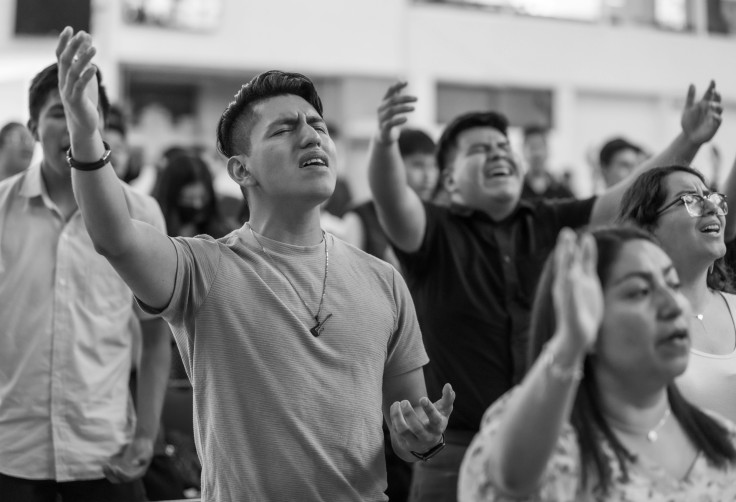
Latino voters are poised to play a pivotal role in this year's election, reflecting their significant influence in both ecclesiastical and political spheres. The diversity within Hispanic evangelical congregations, however, presents a complex challenge for political parties seeking to secure their votes.
A new in depth piece by Christianity Today takes a look at the nuances of this particular demographic that could reshape the electoral landscape in 2024, including which party could benefit the most.
Among the many interviewees for the piece, Gabriel Salguero, pastor of The Gathering Place in Orlando and president of the National Latino Evangelical Coalition, describes Latino evangelicals as "quintessential swing voters", navigating a wide array of generational, cultural, and theological perspectives.
"[There's] the assumption of Because we're evangelical, we're Republicans; because we're Latino, we're Democrats. Assuming that they can take us for granted—either party—I think that's a mistake."
There is, nevertheless, a clear allure of Donald Trump among a large portion of Latino evangelicals, particularly in charismatic circles. And a lot of it stems from his campaign's explicit outreach on faith issues. Trump's promises to defend Christianity, protect religious liberties, and advocate for pro-life causes resonate deeply within these communities, contributing to a noticeable shift in political allegiances.
In fact, a recent piece by Axios highlighted the surge of Christian Nationalism, a doctrine that "seeks to establish a country governed by a fundamentalist interpretation of the Bible" and its close ties with Trump and the Republican Party.
Key figures in the Party have openly espoused Christian nationalist beliefs including Trump's former budget director Russ Vought, House Speaker Mike Johnson (R-La.) and Rep. Marjorie Taylor Greene (R-Ga.)
Robert Chao Romero, a pastor and UCLA professor, attributes Trump's appeal among Hispanic Christians to his alignment with traditional values and a robust stance against oppressive leftist or authoritarian states lie Venezuela, Nicaragua or Cuba:
"Because of the countries they come from, they're like, Well, we don't want to become socialist. There's that natural more Republican-leaning thing happening in that context."
The piece by Christianity Today, also highlights younger generations of Hispanic Christians that are reshaping the landscape with a greater interest in social justice issues that fit with their faith commitments. It's worth noting that around a third of worshipers in Hispanic Protestant congregations in the US are under 30.
Alexia Salvatierra highlighted the generational shifts within this group, where youth advocacy for criminal justice reform, education access, and immigration policies reflects broader societal concerns:
"We are a familia-oriented culture. ... That means that you can't demonize the other. The reality is that the Latino evangelical community is diverse across the political spectrum. We tend to have relationships across the line."
As the election approaches, the complex interplay of faith, culture, and politics among Evangelical Latinos defies easy categorization. Political strategists face the challenge of understanding and predicting the diverse perspectives and priorities within this crucial voting bloc, where familial ties and shared faith traditions often transcend partisan divides.
© 2024 Latin Times. All rights reserved. Do not reproduce without permission.







